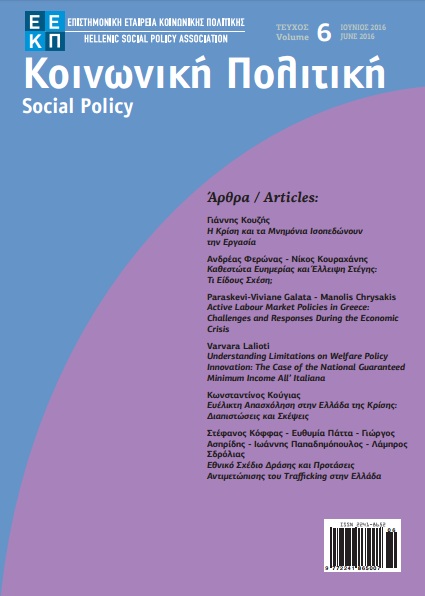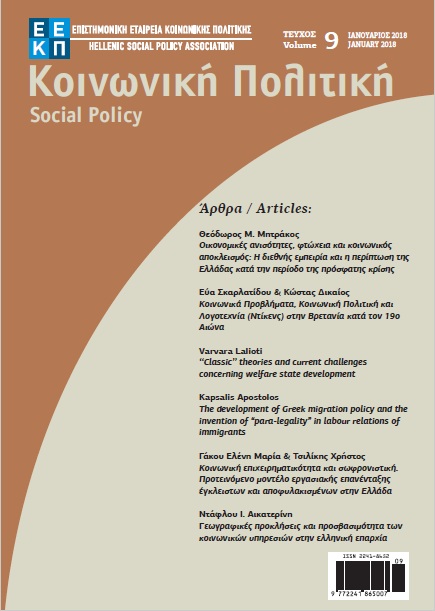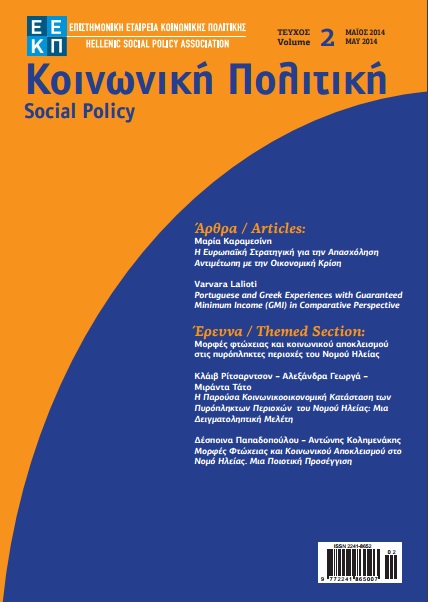Understanding Limitations on Welfare Policy Innovation: The Case of National Guaranteed Minimum Income All Italiana
Abstract
At the beginning of 2016, Italy remained one of the very few Eurozone countries without a national-level Guaranteed Minimum Income (GMI), arguably a major lacuna in the armoury of the welfare state at a time of severe crisis and significant public spending cuts. Drawing on personal communications, parliamentary archives and secondary sources, an actor-centred approach emphasizing the role of domestic actors such as parties, trade unions and religious organizations is utilized to discuss the chronicle of the Italian GMI experience; especially the experimental national GMI in the late 1990s and the early 2000s.
The experiment met with an early demise due to a meagre support base, in conjunction with the dominance of northern interests at the ministry responsible for the design and implementation of a scheme that mainly benefited the poorer south. A policy targeting ‘outsiders’ and introduced without broad consensus among key policy actors is unlikely to be durable. The recent economic crisis has revived the debate, as old and new policy actors express support for national-level GMI.
Article Details
- Come citare
-
Lalioti, V. (2017). Understanding Limitations on Welfare Policy Innovation: The Case of National Guaranteed Minimum Income All Italiana. Κοινωνική Πολιτική, 6, 67–84. https://doi.org/10.12681/sp.10881
- Fascicolo
- V. 6 (2016)
- Sezione
- Άρθρα

TQuesto lavoro è fornito con la licenza Creative Commons Attribuzione 4.0 Internazionale.
Οι συγγραφείς των άρθρων που δημοσιεύονται στο περιοδικό διατηρούν τα δικαιώματα πνευματικής ιδιοκτησίας επί των άρθρων τους, δίνοντας στο περιοδικό το δικαίωμα της πρώτης δημοσίευσης. Άρθρα που δημοσιεύονται στο περιοδικό διατίθενται με άδεια Creative Commons 4.0 και σύμφωνα με την άδεια μπορούν να χρησιμοποιούνται ελεύθερα, με αναφορά στο/στη συγγραφέα και στην πρώτη δημοσίευση για μη κερδοσκοπικούς σκοπούς και με δικαίωμα τροποποίησης μόνον με παρόμοια διανομή (αν αναμείξετε, τροποποιήσετε, ή δημιουργήσετε πάνω στο υλικό, πρέπει να διανείμετε τις δικές σας συνεισφορές υπό την ίδια άδεια όπως και το πρωτότυπο).





